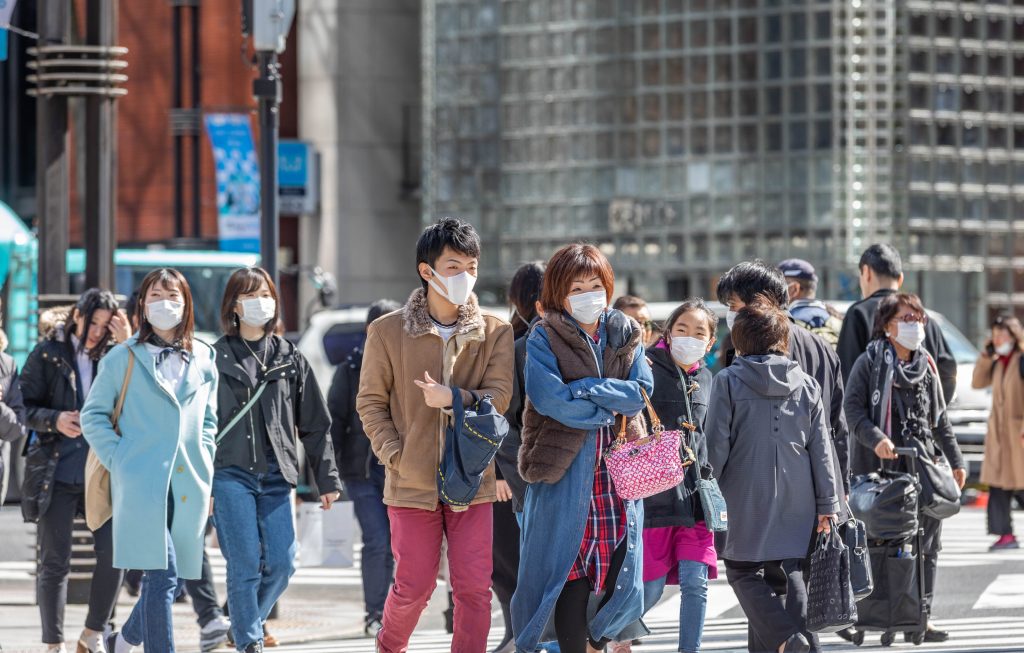Vaccinations and immunity acquired through infection may be behind the current downtrend in new COVID-19 cases.
In the seventh wave, which hit the nation this summer, the highly transmissible BA.5 omicron subvariant was the dominant strain. The cumulative number of infection cases in the country reached 10 million on July 14 and 20 million about two months later.
In the meantime, new daily cases marked a record high of 260,923 on Aug. 19 but began to decrease rapidly after that although no coronavirus-related restrictions on movement have been in place.
The plunge may have been largely due to “temporary herd immunity” resulting from vaccinations and infections, said National Institute of Infectious Disease head Takaji Wakita, who chairs a health ministry panel of experts.
“We can probably say that the seventh wave has passed its peak,” Tokyo Medical University professor Atsuo Hamada said.
“Hybrid immunity,” acquired through both vaccinations and infections, may have also played a major role, Hamada said, noting that the proportion of people who have been received three vaccine shots has topped 65 pct.
Still, there are concerns about novel coronavirus and flu infection cases surging at the same time this winter.
No influenza outbreak occurred in Japan in the last two seasons, and the number of people without immunity may have increased as a result.
Flu patients increased sharply in Australia this year after the country did not see an outbreak in the past two years.
Considering the situation in Australia, a possible flu outbreak in Japan this season may start in November-December, about two months earlier than usual.
Respiratory infectious diseases tend to spread in winter.
In particular, many people may see the effects of COVID-19 vaccines they got in the past decline this winter.
“An eighth wave of novel coronavirus infections is highly likely to occur this winter,” Hamada warned, adding that COVID-19 and flu cases may increase simultaneously.
“We should speed up the administration of COVID-19 vaccines targeting omicron variants and accelerate efforts to strengthen the country’s medical care system, based on the lessons we learned from the seventh wave, such as the strains on medical professionals dealing with outpatients with fevers and shortages of hospital beds,” he said.
JIJI Press






















